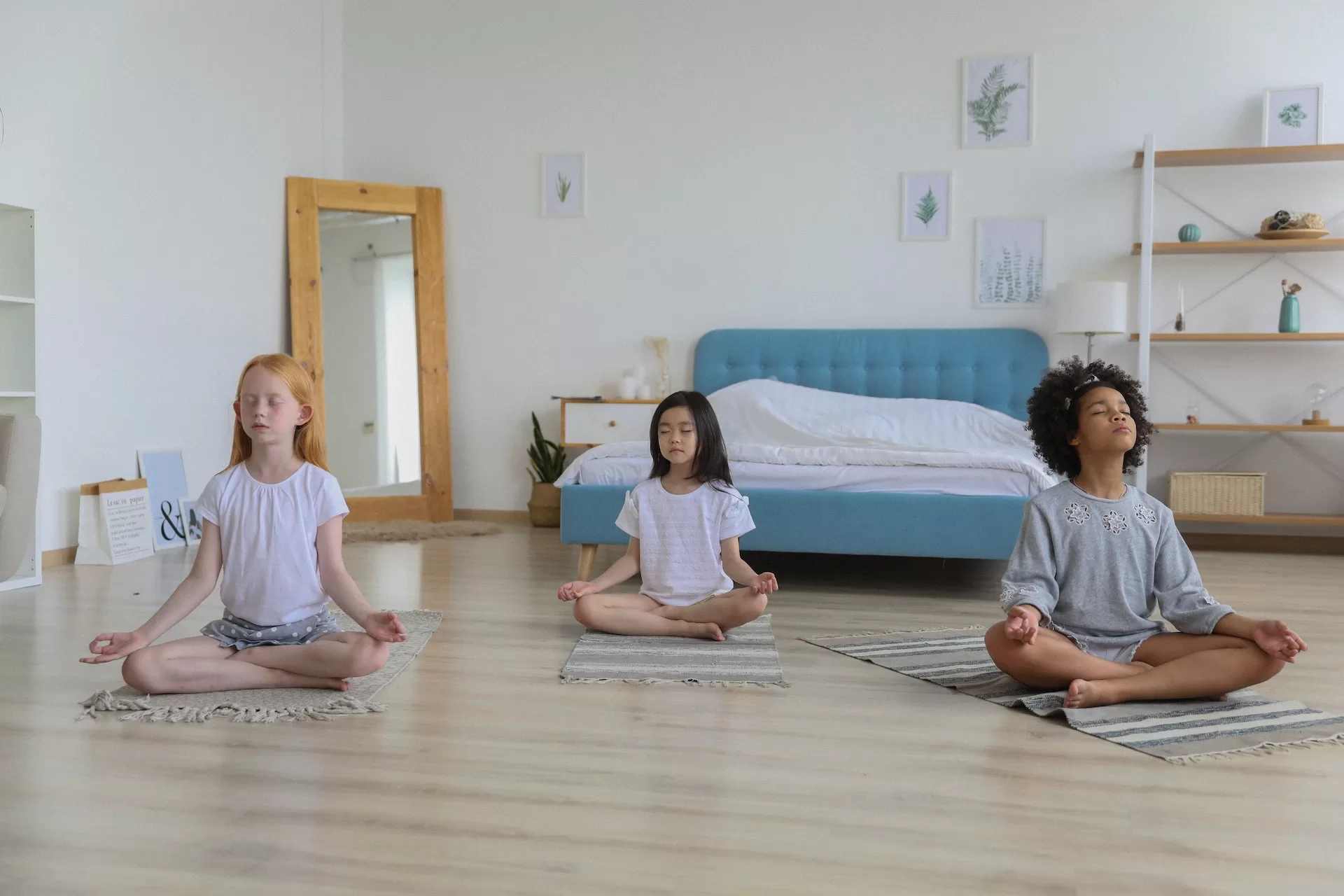Meditation is quickly becoming a mainstream practice world-wide, with more and more people understanding its beneficial qualities and applying it to their lives. This includes children, who often experience a variety of stressors and are still developing the skills to manage challenging emotions and difficult situations.
Meditation for children has a number of transformational benefits, including improved physical health and mental wellbeing, enhanced emotional intelligence and improved ability to focus. In this guide, we will discuss how children can benefit from meditation.
The Science of Meditation and Neuroplasticity
By introducing children to meditation, we can help them create neural pathways that support mental and emotional wellbeing, setting the foundation for lifelong resilience.
As humans, our brains are constantly changing and adapting in response to both external and internal stimuli, a process known as neuroplasticity.
Neuroplasticity, which was once thought to be a static process, is now known to be dynamic: our brains are constantly creating new connections and pathways in response to experiences.
Introducing children to meditation helps them to create, strengthen and reinforce neural networks that will enable them to more easily bounce back from challenging situations, regulate their emotions and create positive mental states that support a healthy sense of self.
The Benefits of Meditation for Children
The immediate and long-term effects of meditation on young minds is fairly well-documented and includes a range of positive outcomes from improved cognitive function to enhanced creativity and improved interpersonal relationships.
Let’s look at some of the major benefits of meditation for children:
Reduced Stress and Anxiety:
The most common and easily observed benefit is reductions in stress and anxiety levels, which in turn can lead to improved overall psychological wellbeing. Meditation can help to reduce stress and anxiety by slowing down the sympathetic nervous system which controls the “fight or flight” mechanism, ensuring the child is in a more relaxed state and better able to cope with the stressors they encounter.
Improved Cognitive Performance:
Recent studies have also shown that meditation can improve cognitive performance, with effects including increased memory, greater concentration and increased mental clarity and focus. This can be particularly helpful for children who may suffer from learning and attention issues such as ADHD or dyslexia.
Enhanced Emotional Intelligence:
Research has also shown that regular meditation has the potential to enhance emotional intelligence in children. This can be particularly beneficial for children who may lack the ability to identify, express and regulate their emotions in a healthy way.
Meditation can help children understand and regulate the intensity of their emotions, and create more positive mental states that support emotional intelligence.
Improved Self-Awareness and Self-Regulation:
Finally, meditation can help children to become more aware of their own thoughts, feelings and emotions. Through improved self-awareness and increased self-regulation, children can learn to find ways to manage difficult emotions in healthier ways. This can help them form stronger relationships and make better decisions, both now and in the future.
Teaching Meditation to Children
When it comes to teaching meditation to children, the goal is not to necessarily get them to sit still and quiet for long periods of time, but rather to introduce them to the concept of mindfulness and teach them to become more aware of their thoughts, feelings, and bodies.
There are many different methods that can be used to introduce children to meditation, such as guided imagery, breathing exercises and body scans.
Additionally, it can be helpful to make the process fun by incorporating stories or creative activities such as drawing or painting.
Conclusion
The benefits of meditation for children are truly transformative and can have a positive impact on their physical health, mental wellbeing, and overall emotional intelligence. Introducing children to the concept of mindfulness and teaching them the techniques can help them develop the emotional and cognitive skills that will serve them for their entire lives.

